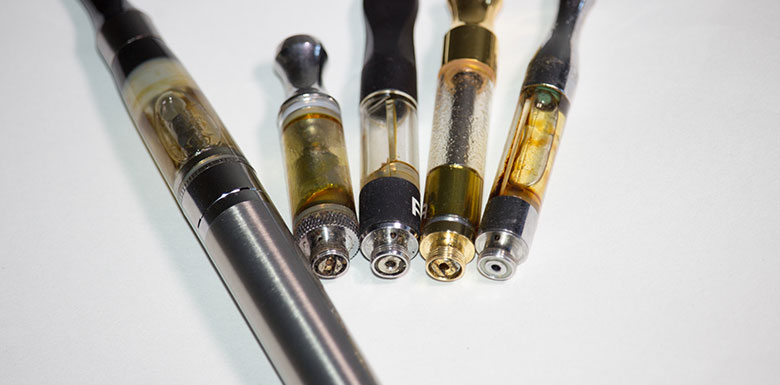Once considered as a safer alternative to smoking, it now turns out that vaping has its dangers too. As of October 8th, 1,299 people have sought medical treatment for respiratory issues, and 26 of them have died, according to the Center for Disease Control (CDC). Their condition first had doctors scratching their heads, but now vaping has been identified as the possible cause. More specifically, Vitamin E acetate, a common additive to cannabis vaping oils, is the most likely culprit.
As is often the case in the cannabis industry, the situation remains fluid, but most indicators show a possible ban on the use of Vitamin E acetate in vaping products. Producers, distributors, and testing facilities of vaping products may receive new regulations.
At McElfresh Law, we are monitoring these developments closely, as they may impact many of our clients in the recreational cannabis industry in California. To learn more about how a cannabis business lawyer can help your venture, call us today at (858) 756-7107 to schedule your consultation.
Adding Vitamin E Acetate to Vaping Oils May Cause Respiratory Illness.
Vitamin E acetate is a common additive in lotions and balms that act as a nutritional supplement. But it is also added to marijuana vaping products–especially by individuals who make their own vaping oils. At room temperature, vitamin E acetate is an oil, but it transforms into a vapor when heated, like in a vape pen. However, once it reaches the lungs, the substance cools down and turns back into oil.
Although inspectors from the Food and Drug Administration (FDA) have yet to release their official, final report, initial findings point to vitamin E acetate as the prime suspect. Investigators found samples of vitamin E acetate on several of the patients. Additionally, many of the people who have reported ill, suffer from lipoid pneumonia, a condition where cells within the lungs get saturated with lipids–or fats. This would suggest that the patients are inhaling large amounts of oil, and the most likely source is Vitamin E acetate.
Homemade Vaping Products May Be to Blame
The FDA has reported that 75% of patients with vaping related illnesses had used products containing THC. Half of the THC vaping products tested so far contained vitamin E acetate. But many of the affected products may be homemade THC vaping brews. As the CDC reports, the majority of patients admitted to using “prefilled cartridges obtained from informal sources.”
Nonetheless, large THC vaping companies such as PAX have come under fire in recent weeks. Even if PAX and most other reputable companies don’t put vitamin E acetate in their vaping formulas, the company’s promotion of THC vaping may have influenced a larger number of people to buy vaping products–some of which may not be safe. Another issue is that PAX pods are easy to refill with homemade THC oils at a fraction of the cost of buying new ones from the company or its affiliates.
Governments and Businesses Are Reacting to the Vaping Crisis
Some cannabis testing facilities are not waiting for the final results of the FDA investigation to take action. Washington based cannabis testing company Confidence Analytics is currently developing a way to test for vitamin E acetate. Rm3 Labs of Colorado is also working on a test that uses high-performance liquid chromatography (HPLC) to detect the substance. In California, Irvine based Think20 Labs told Mjbizdaily that they are considering adding a Vitamin E test.
Government agencies are also taking action. On October 4, the FDA recommended that everyone immediately stop vaping THC products of any kind–including those purchased from reputable companies. California health officials issued a more measured warning, advising citizens to steer clear of illicit cannabis vape pens. Once the final report from the FDA is issued, there is a good chance that the California government will issue new laws or regulations about the contents of THC cartridges.
Contact McElfresh Law
Moving forward, the legitimate California cannabis industry may face compliance issues when and if the government issues new regulations on THC cartridges. At McElfresh Law, we can help your business react to, and anticipate, regulatory or legal developments that could impact your business.
To schedule a consultation with a California cannabis business lawyer, call (858) 756-7107 today.
